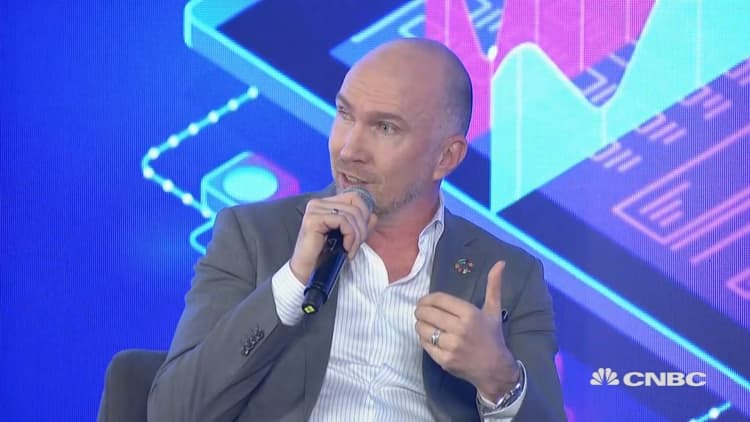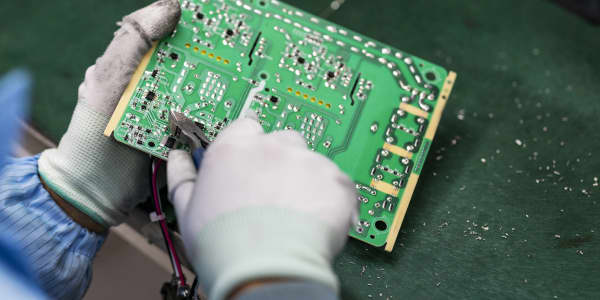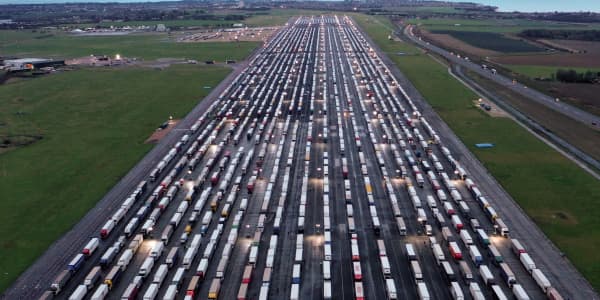
Islands of 5G mobile internet coverage to pilot and test possible network uses can be expected in 2019, Hakon Bruaset Kjol, the senior vice president, partner and head of external relations in Asia for the Telenor Group, told CNBC Wednesday.
5G is widely predicted to transform future technologies and industries, like manufacturing, with many countries preparing for rollouts within the next few years.
Bruaset Kjol said people have a lot of high hopes for it but need to take a step back as it's not revolutionary tech. It is "evolutionary tech that is already out there," he told CNBC's Chery Kang at the East Tech West conference in the Nansha district of Guangzhou, China.
Application of 5G
"What is going to be much more interesting when it comes to 5G is the use cases that 5G will support ... It will be more of a business-to-business type of network, rather than a consumer network to begin with," he explained.
"In 2019, we expect that you will see islands of 5G coverage, which is going to be much more for piloting and testing. Bringing the network to a larger group of users so we can start to see what kind of services will actually go on top of this network," he said.
The advantage of 5G is that it will provide greater bandwidth and speed compared to previous generations — and it has lower latency, which means it is suitable for heavy data transfers.
Bruaset Kjol thinks the first cases we will see of 5G will predominantly be in smart cities and autonomous vehicles, "because autonomous vehicles need low latency to be safe," he explained.
He also expects use cases of 5G to be rolled out within health care, "there is a lot of health care that requires remote access and it would be possible to do real transfers using this network in remote areas," he said.
"5G will also be very important within industrial manufacturing, which requires robotics where you need productivity," he added.
5G and IOT
Bruaset Kjol was asked about the role 5G will play within the internet of things (IOT) sphere. This is the term used to describe a world in which devices — like home appliances — are connected to the internet and can be synced so users can control that device from an app whilst away from home.
"5G will certainly be helpful but there are already solutions out there ... I do think you will see waste bins and fire alarms and all these types of electrical appliances will start to scale this year," he added.
However, Bruaset Kjol doesn't think 5G will have a big impact on this area in 2019 but said beyond 2020 we should see more of an impact when large-scale 5G networks are deployed.
5G and cybersecurity
Earlier this year, Australia banned Chinese telecoms from the country's 5G rollout. Mike Burgess, director general of the Australian Signals Directorate, said in October that China's Huawei and ZTE were banned from providing 5G technology equipment to Australia because of national security concerns. Following the ban, Huawei criticized the Australian government, claiming the decision was politically motivated.
Bruaset Kjol was asked his thoughts on the security issues posed by 5G. He said: "Our customers trust us with their data everyday and it is our obligation to make sure that data is safe, then of course governments do their bit by having good data protection acts and put in place regulation that is also a part of this."
Talking about how the Norwegian multinational Telenor safeguards data from cybersecurity breaches, he added: "We have to be rigorous and vigilant in the way that we do this, both in terms of the IT structure that we put out, but also people issues. Cybersecurity issues don't just stem from hacking and burglary, they also stem from not having the right safety and security culture in the company and we place a lot of emphasis on that."




